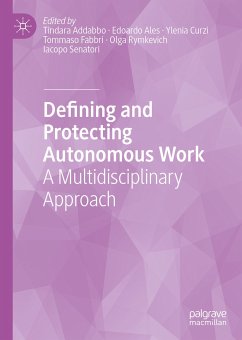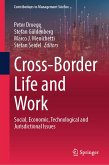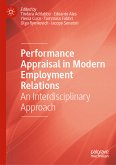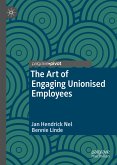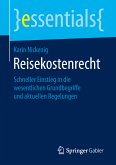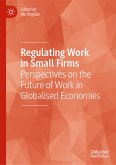This book, adopting a multidisciplinary approach, investigates the definition of autonomous work and the kind of protection it receives and should receive in a global perspective. The book advocates for the existence of genuine autonomous work to be distinguished from employment and false self-employment. It deserves specific attention from legislators in the view of removing any obstacles to the exercise of freedom of association and collective action at large.
The book is divided into two parts. The first focuses on the evolving notion of autonomy and its consequences on social protection, offering a theoretical frame from an organizational, political and legal point of view. The second aims at discovering new regulatory and protective horizons for autonomous work, in the light of blockchain, platform work, EU Competition Law, social security and liberal professions. Finally, the authors offer insights and recommendations on how to protect work beyond categories.
Tindara Addabbo is Full Professor of Economic Policy, 'Marco Biagi' Department of Economics, University of Modena and Reggio Emilia, Italy. She is member of the Scientific Committee of the Marco Biagi Foundation.
Edoardo Ales is Full Professor of Labour Law and Industrial Relations at the Department of Law, University of Naples 'Parthenope', Italy. He is member of the Scientific Committee of the Marco Biagi Foundation.
Ylenia Curzi is Associate Professor of Organization and Human Resource Management, 'Marco Biagi' Department of Economics, University of Modena and Reggio Emilia, Italy. She is member of the Scientific Committee of the Marco Biagi Foundation.
Tommaso Fabbri is Full Professor of Organization and Human Resource Management, 'Marco Biagi' Department of Economics, University of Modena and Reggio Emilia, Italy. He is member of the Scientific Committee of the Marco Biagi Foundation.
Olga Rymkevich is Researcher in Labour Lawand Industrial Relations at the Marco Biagi Foundation, Italy.
Iacopo Senatori is Assistant Professor of Labour Law, 'Marco Biagi' Department of Economics, University of Modena and Reggio Emilia, Italy. He is member of the Scientific Committee of the Marco Biagi Foundation
The book is divided into two parts. The first focuses on the evolving notion of autonomy and its consequences on social protection, offering a theoretical frame from an organizational, political and legal point of view. The second aims at discovering new regulatory and protective horizons for autonomous work, in the light of blockchain, platform work, EU Competition Law, social security and liberal professions. Finally, the authors offer insights and recommendations on how to protect work beyond categories.
Tindara Addabbo is Full Professor of Economic Policy, 'Marco Biagi' Department of Economics, University of Modena and Reggio Emilia, Italy. She is member of the Scientific Committee of the Marco Biagi Foundation.
Edoardo Ales is Full Professor of Labour Law and Industrial Relations at the Department of Law, University of Naples 'Parthenope', Italy. He is member of the Scientific Committee of the Marco Biagi Foundation.
Ylenia Curzi is Associate Professor of Organization and Human Resource Management, 'Marco Biagi' Department of Economics, University of Modena and Reggio Emilia, Italy. She is member of the Scientific Committee of the Marco Biagi Foundation.
Tommaso Fabbri is Full Professor of Organization and Human Resource Management, 'Marco Biagi' Department of Economics, University of Modena and Reggio Emilia, Italy. He is member of the Scientific Committee of the Marco Biagi Foundation.
Olga Rymkevich is Researcher in Labour Lawand Industrial Relations at the Marco Biagi Foundation, Italy.
Iacopo Senatori is Assistant Professor of Labour Law, 'Marco Biagi' Department of Economics, University of Modena and Reggio Emilia, Italy. He is member of the Scientific Committee of the Marco Biagi Foundation
Dieser Download kann aus rechtlichen Gründen nur mit Rechnungsadresse in A, B, BG, CY, CZ, D, DK, EW, E, FIN, F, GR, HR, H, IRL, I, LT, L, LR, M, NL, PL, P, R, S, SLO, SK ausgeliefert werden.

